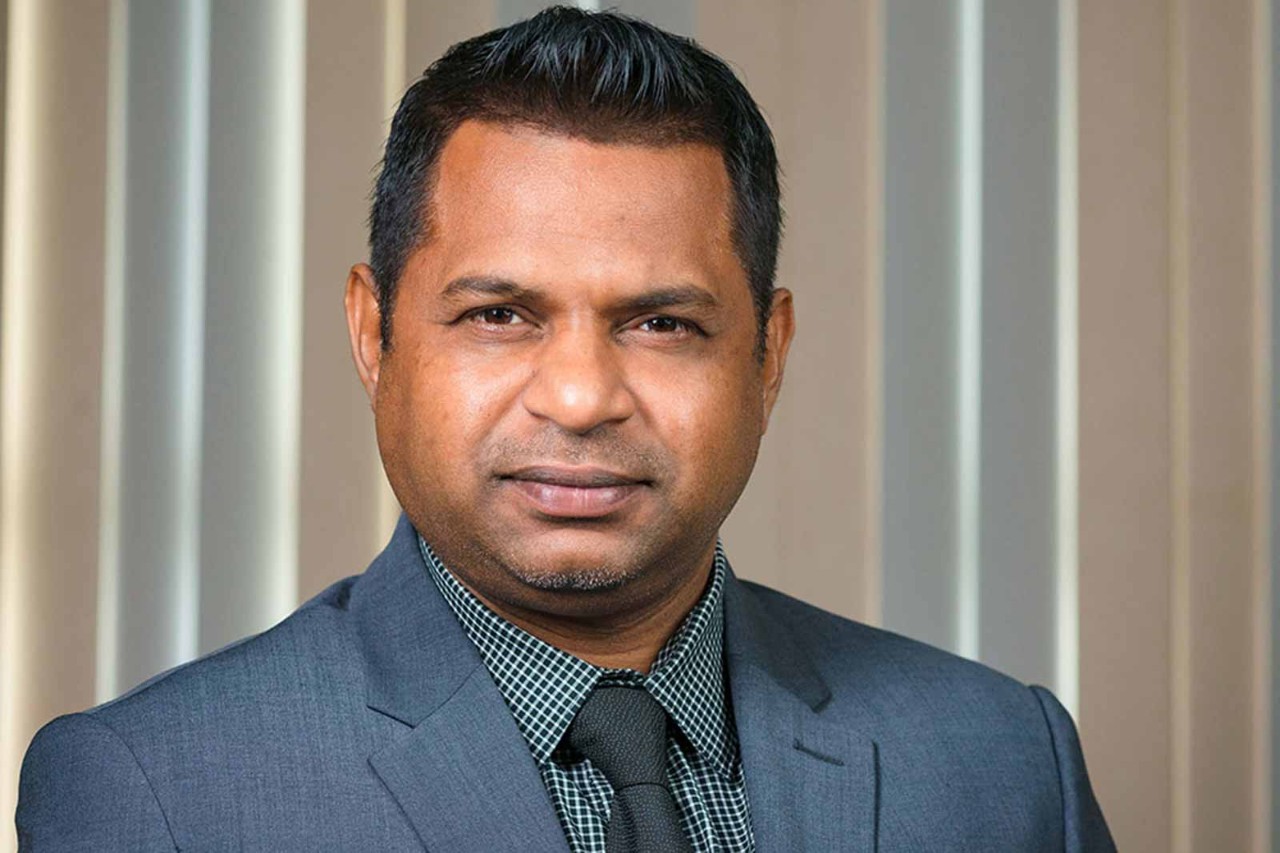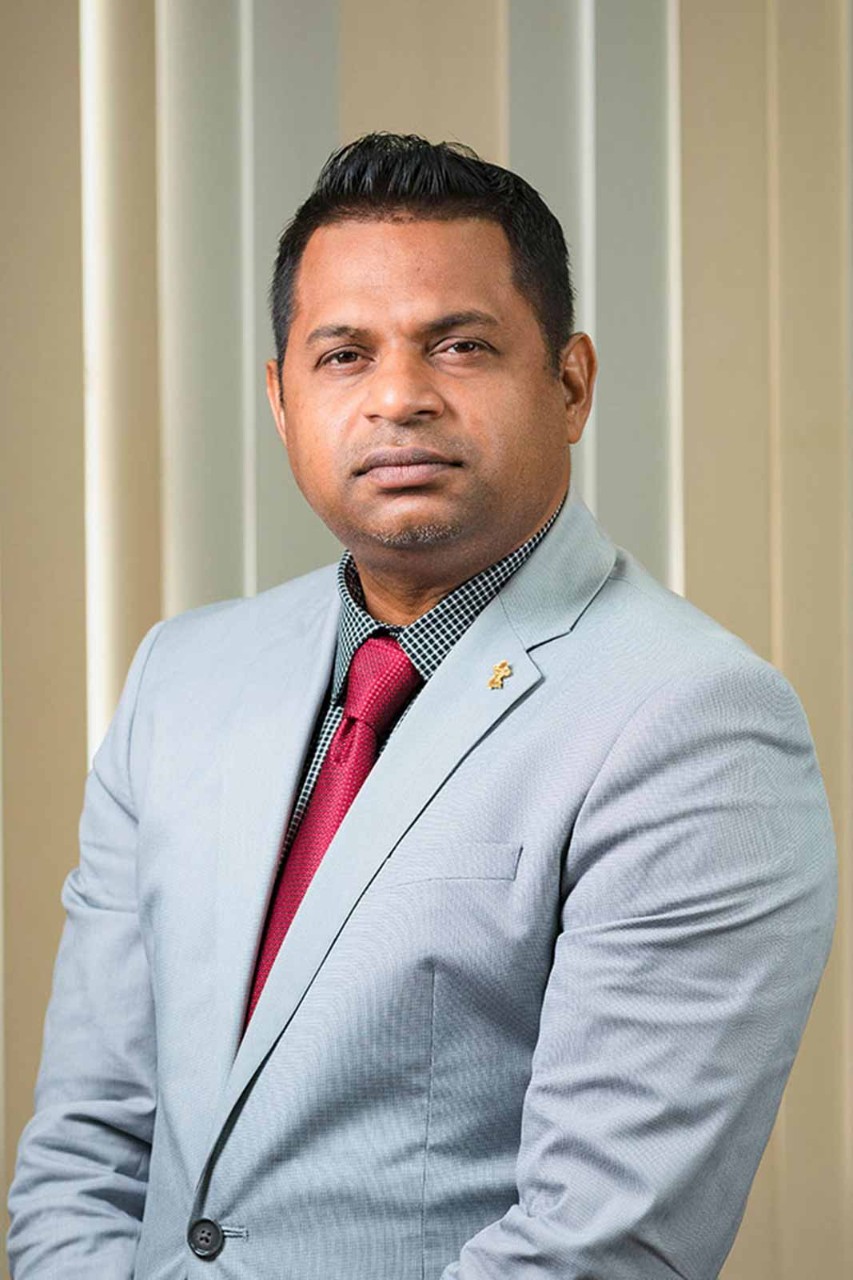
The president calls. It’s urgent. ‘Yes, chief,’ answers Deodat Indar FCCA, one of Guyana’s ministers of public works, cabinet member, former finance chief and qualified accountant. He apologises, breaks off from our Zoom meeting and turns his attention to Irfaan Ali, Guyana’s political leader since August 2020.
A few minutes later, when Indar calls back on a shaky Zoom connection, emergency apparently resolved, he continues talking about the role of his ACCA training and skills in public office as if nothing had happened. Calls from the president are all in a day’s work.
‘Rather than just a company, you’re looking out for the wellbeing of the entire country, to better their lives’
CV
2020
Minister within the Ministry of Public Works, Guyana
2018
Vice chair, Private Sector Commission of Guyana
2017
President, Georgetown Chamber of Commerce & Industry, Guyana
2011
President, Institute of Internal Auditors, Guyana
2010
Consultant, Ministry of Finance, Guyana Revenue Authority
2006
Financial controller/company secretary, Sterling Products
2005
Lecturer
2002
Assistant accountant, Guyana Forestry Commission
2001
Operations manager, Guyana Beverages
1998
Accounts clerk, Guyana Beverages
‘I’m part of the highest law-making body, which is the parliament. When there is the budget to present, my finance skills come into full swing,’ Indar says.
‘When there are any financial papers on loans, anything to do with finance and commerce… I can present to the National Assembly in a detailed form using trend analysis, or simulation models, of any financial matter within the sphere of public finances in Guyana. And that reflects how my skills have evolved because of my grounding with the ACCA Qualification.’
Leadership road
Education and training are key subjects for Indar as he talks about his rise to Guyana’s cabinet after being persuaded to stand for the People’s Progressive Party in the March 2020 general election.
His is a journey from hardship and poverty – raised by a single mother caring for 10 children – to business leadership and then to the country’s cabinet. It was a journey propelled by a teacher who nurtured mathematical ability in a primary school student brought to the front of the class for extra attention.
‘That person gave me a little extra nudge,’ says Indar. ‘And I started to get exceptional scores.’ Then came the realisation that education was the way out of poverty.
‘Something in me, I don’t what it was, said, “You have to get yourself education”.’
After leaving school at age 17, he worked as an accounts clerk for Guyana Beverages Inc. By 20 he was operations manager and studying for formal accountancy qualifications in his spare time. He first took exams to become an accounting technician, then moved on to ACCA.
By age 24 he was fully qualified and by then working at the Guyana Forestry Commission. But he moved on to join Sterling Products Ltd, one of Guyana’s largest manufacturers, as financial controller, the most senior finance position in the company. While at Sterling he studied for a degree at Oxford Brookes University in the UK. He has also became a Certified General Accountant (CGA) from Canada, became a member of the Chartered Professional Accountants (CPA) of British Columbia, Canada, obtained a Certified Internal Auditor (CIA) certification from the Institute of Internal Auditors (US) and a master’s in business administration from the University of East London (UEL).
But he counts ACCA as a turning point. ‘Being a truly international qualification, it gave me, and a lot of other guys, a chance of becoming successful.
‘Without ACCA, I can tell you flat out, I would not have ended up in a corporate position in the private sector.’
Outside work, he has served as president/chair of the Guyana chapter of the Institute of Internal Auditors, was treasurer of the Guyana Scout Association, given lectures for ACCA, was president of the Georgetown Chamber of Commerce and Industry (GCCI) and was vice chair of the Private Sector Commission of Guyana (a national body representing business interests in the country). Indar has been nothing if not busy.
Out of the business shell
Now, however, he is throwing his energy into government work, using the skills he acquired for business. ‘I thought that… if I can move out of that shell, I may be able to help people.’
The public works portfolio puts Indar in charge of everything from traffic lights to road building (Georgetown, especially, suffers debilitating traffic congestion), international harbours and the airport. He hopes the country will be transformed by the relatively recent discovery of offshore oil and gas reserves which came online in 2019. Turning the country into an exporter of crude oil should bring in much needed public funds, generate economic activity and offer Guyana its own cheap energy supply to power industrial expansion.
Bringing better roads, cheap energy and jobs to Guyana’s poor, is, Indar says, what drove the People’s Progressive Party’s election manifesto and his move into politics. His new responsibilities are a significant change from the private sector, as he readily concedes.
‘Where we’re going in the future for this country is unknown. But we know what we want’

Top tips
Top tips
Deodat Indar places a premium on education, analytical skills, preparedness and personal values. Here are his top tips.
Preparedness
‘You have to continuously read, keep yourself abreast of new standards, new ways of doing business, new operational methods, new models for development and standardisation.’
Values
‘Personal decorum is also a key to development. When you come to the table you cannot come thinking you know more than everyone else, you have to come with a listening ear.’
Public sector
‘Stay clean, stay honest, work for the people. You have to walk the ground, meet the people, hear their issues and respond to them. We have to understand the various strata of our society and how fast they need social benefits and government services delivered to them.’
Skills
‘The key requirement as a minister are analytical skills in accounting, the ability to analyse proposals. The ability to analyse financial statements is key to any project proposal.
‘If you are not reviewing properly, not looking at the right things, you can make mistakes with public money. And that is something no one wants.’
‘In the private sector your motives are profit-driven: expansion and growth. In government, the motive is to make the lives of people better.
‘Rather than just a company, you’re looking out for the wellbeing of the entire country, to better their lives.’
Infrastructure, Indar’s core ministerial responsibility, is the key. ‘A lot of the infrastructure we saw when we took government, and we continue to see, is in a bad state, and we are trying to rectify, rebuild and repair whatever we can.’
He says the prospect of gas and oil playing a major role in the Guyanese economy is ‘exciting’, although it clearly needs to be balanced with efforts to counter climate change. The country has a low-carbon development plan to protect its pristine rainforests as one of the ‘oxygen tanks of the world’.
‘We have to balance the two,’ Indar says. ‘But we need natural gas for the industrialisation of the country. That will take down energy costs, which is one of the main impediments to businesses and manufacturers here.’
Of course, the pandemic has had an impact on the country, too. Guyana’s infection rate appears to be peaking at about 90 each day – around 11,600 cases in total so far, with 260 deaths. This in a population of 780,000.
But Indar is focused on government policy objectives and his work for the people of Guyana. The pandemic has restricted ‘physical encounters’, but Indar aims to keep in touch with the people of Guyana.
The good of the people
‘You can’t replace physically being on the ground to see firsthand of what’s going on with people’s livelihoods. But you have to maintain contact with people using methods that are safe for yourself, for your team and the people you’re going to meet.’
Mostly though, Indar believes in using what he’s learnt so far for the good of people who struggle with the same kind of poverty in which he was raised.
‘I could have used my education to go anywhere and set up shop. I could have gone to the UK, maybe Canada or the US, or any Caribbean island. I am qualified, I can practise anywhere.
‘I stayed here because I believe that my countrymen and women can benefit from my skills and my ability to get things done.
‘Where we’re going in the future for this country is unknown. But we know what we want. We want to make sure the country is industrialised, that our people live happier lives, have access to government, goods and services, and that the country is built out in terms of infrastructure so that we can have ease of mobility.’

